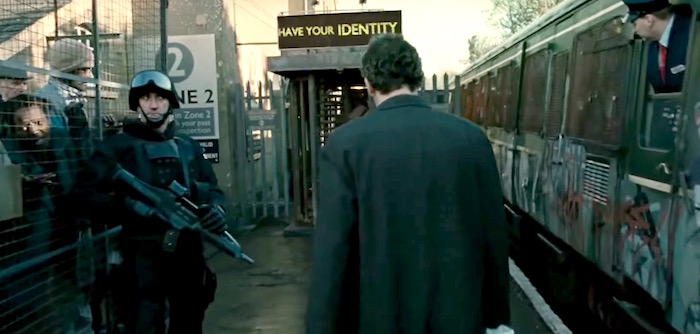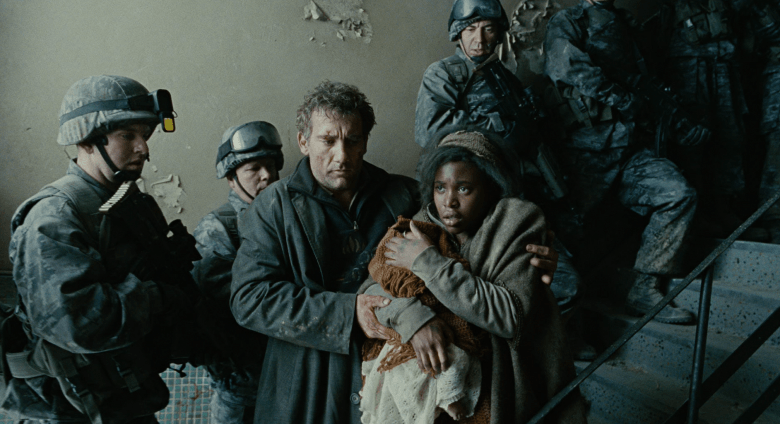David here on the tenth anniversary of a modern masterpiece...

Watching Children of Men at the end of this particular year is an almost surreal experience, because P.D. James’s dystopian vision of the world seems even more feasible than ever. It’s hard to not feel like the new president elect is leading us to a world like the one we glimpse on the video screens, where all cities the world over have been devastated by riot and ruin. It’s hard to not see the xenophobia of the Brexit referendum result in the end of the same video, which declares ‘Only Britain Soldiers On’, as if there’s some value to be had in a country that cages immigrants on train platforms and allows the privileged white man to shut himself off in glacial towers. “You know what it is, Theo?” says Danny Huston’s government minister of his cousin (Clive Owen), when asked how he lives contentedly shut off from the devolution outside. “I just don’t think about it."
Watching Children of Men in a world that seems to be going rapidly backward from the progress people have been fighting for across the last century is despairing during the film’s darkest moments. The selfishness, the cruelty, the hatred and the bigotry of humanity is all on brutal display, political warfare blaring over the top of the intimate human story that underpins the narrative.
This fictional dystopia is still separated from our reality, if by just one thing: every single hope had been stripped away. James’s remarkable conceit is that, some eighteen years before our story begins, the entire world became mysteriously infertile. The youngest human on earth, ‘Baby Diego’, is an arrogant celebrity who has just died - even the youngest that remain, it seems, are fragile. In a civilisation that rests its hopes on the young and their future potential, their absence and frailty turns the world on its head. Set in the midst of this, the introduction of a pregnant woman is an alien sight. So alien that when Theo guides Kee (Clare-Hope Ashitey) through a chaotic refugee camp, no one realises that she’s in labour because it is such an unfamiliar, inconceivable occurrence.
What can’t be taken away from Alfonso Cuarón’s modern masterpiece is its majestic power. The celebrated long takes are so carefully choreographed that they are simultaneously breathtaking in their audaciousness and thrilling in how instinctive they feel. Quite how the visual and sound effects are achieved within these scenes is astonishing. It’s a bravura technical effort from all involved - I’d still call it the finest work Emmanuel Lubezski has ever done - but it is far from being a hollow spectacle. Cuaron uses haunting choral chants on the soundtrack, lending the film an unspecified spirituality - Kee is the Virgin Mary for the dystopian age, albeit with a fouler mouth.

I sat there with tears streaming down my face at the remarkable power of the clarion call that is the baby's innocent cry, as Theo leads Kee through the gaping faces of refugees and soldiers alike. Children of Men takes you to the depths of humanity’s despair and leads you out with the smallest, purest beacon of possibility. As we close 2016, with all the discussion of just how many uncountable things went wrong this year, perhaps it is worth taking a voyage into Cuarón’s masterpiece, as a reminder that even the most desperate times, and the most cynical people, can be changed by the tiniest sliver of hope.